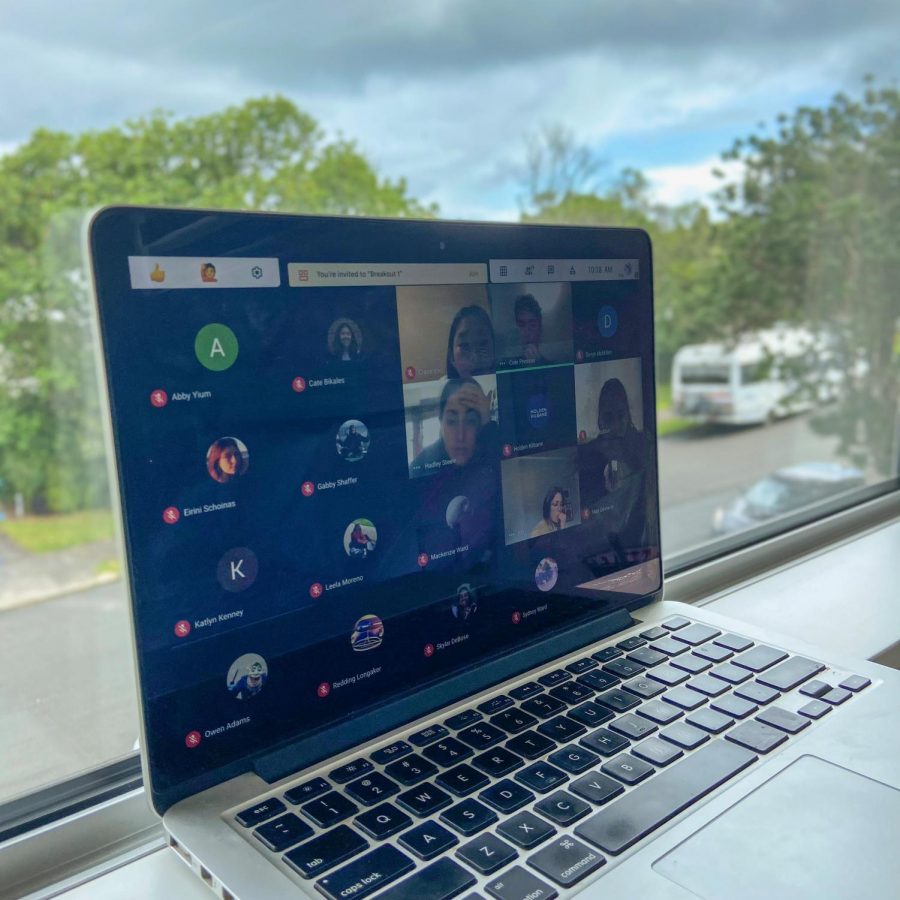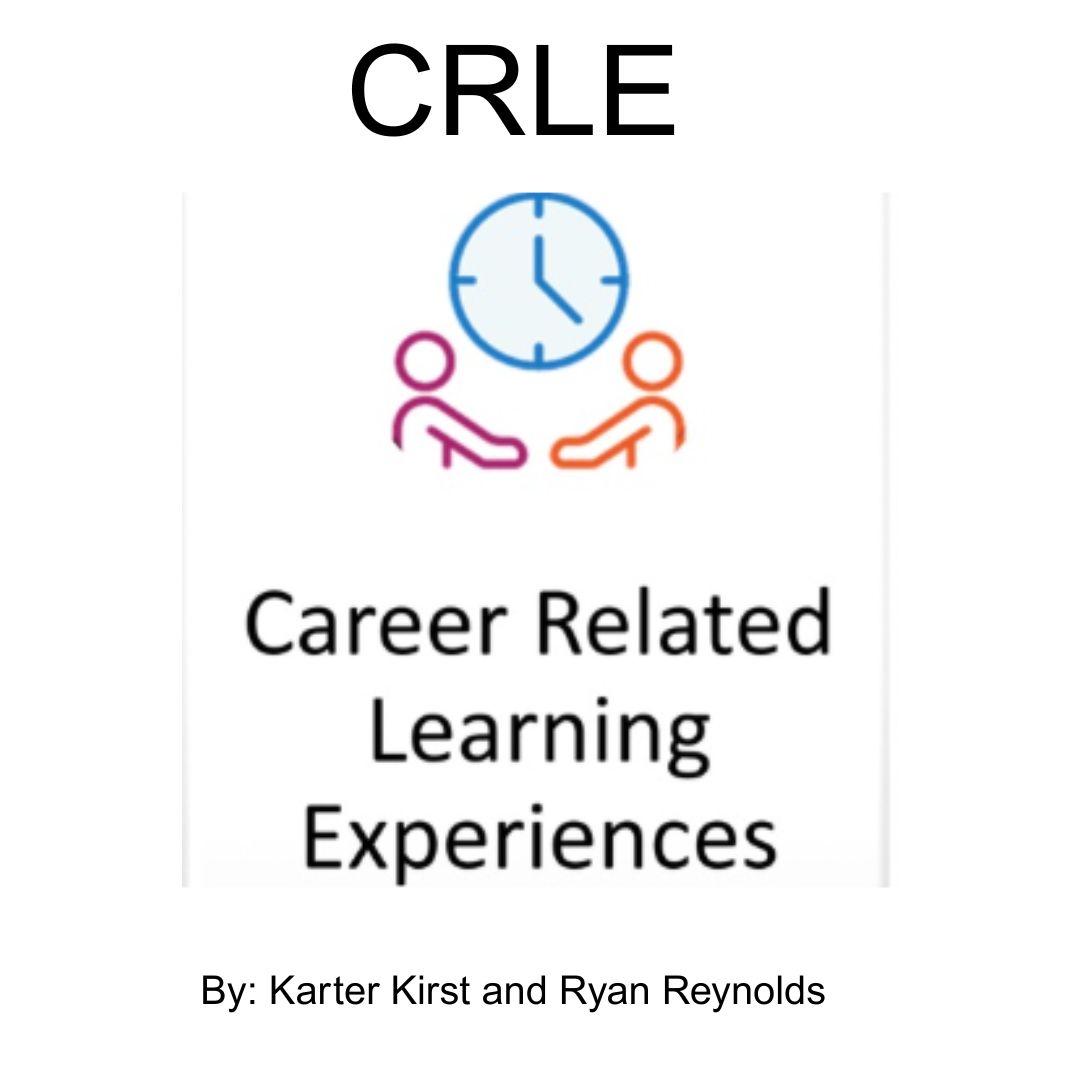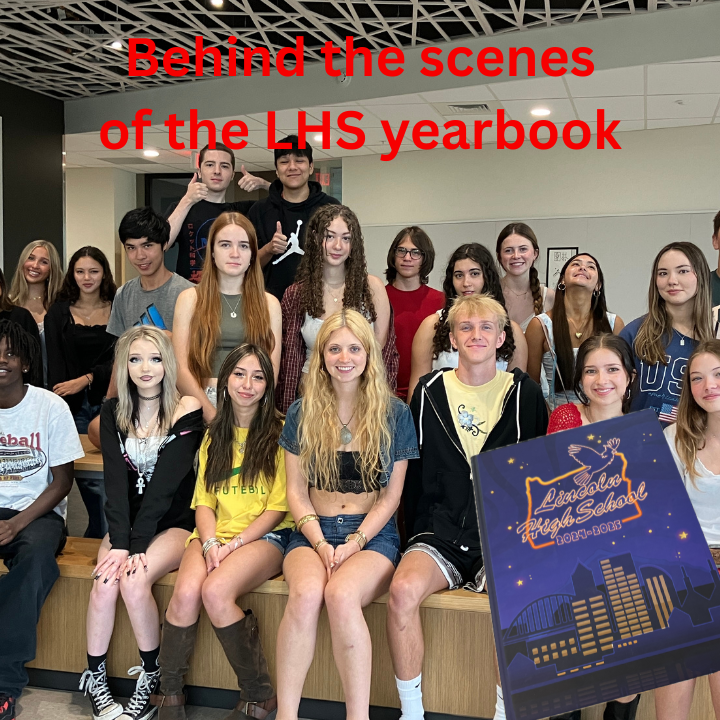Op-ed: What the future of school after COVID will look like
A Google Meet during an online school day. Isabella Lo writes more below about what school, and the world, will look like after the COVID-19 pandemic ends.
November 26, 2020
While I cannot predict the future exactly, I know that it will look very different. The COVID-19 pandemic has permanently changed our lives in positive and negative ways, both in school and outside of it.
I miss standing by our lockers in the morning and waiting for the bell to ring, walking down the halls and seeing my friends, or even the ability to talk to my tablemates sitting next to me without my computer crashing or having to wait five billion years for the breakout room to load.
Many have faced challenges navigating the online world because of unfamiliarity and lack of control, but the online world has also revealed conveniences that should stick around, even once the pandemic is over.
Virtual Back-to-School Night (BTSN) should be here to stay. On Sept. 30, Lincoln held a virtual BTSN, which saved people time and worrying. The execution was smooth, as Google Meet links for each student’s classes were emailed to the parent or guardian days before the event. People also did not have to take time traveling to school or worrying about finding parking or babysitters for younger kids at home.
Similarly, parent-teacher conferences will be carried out virtually this year. The upsides and conveniences of virtual BTSN are the same for the conferences. While in-person conferences might feel more genuine, they should be more effective online, as parents will not have to take time off to come to the school, and people can attend from no matter where they are.
The downside to conducting these events online, as is a downside to all virtual events, is that parents who do not have access to the internet or to a device where they can view the event cannot attend it. PPS currently offers hotspots and distributes Chromebooks, and hopefully, they can continue to provide these services if needed after the pandemic.
Now that we have experienced attending school and living our lives online, we have seen that it can work. I would prefer to be back in person, but I understand why online school might work better for some. Online school allows for more flexibility and teaches us to be self-disciplined. If students have to work or tend to other needs, they can more easily do these things and catch up on schoolwork later.
Another advantage of online learning is the introduction of Canvas at Lincoln. While Canvas has caused confusion and frustration, it has more features than Google Classroom. Once we are all used to its functionality, I think it will be a great time-saving resource for teachers and students.
Other high schools and colleges were already using Canvas before the pandemic, so if Lincoln students plan to go to a college or university that uses Canvas, they will already be acclimated to it.
However, attending school online also has its downsides. We have to be on top of our work, as more of it is carried out at our own responsibility and motivation. Some students need or appreciate more structure and guidance, including myself, and lack of motivation has been a common problem amongst friends and classmates. Days can feel monotonous or unexciting at times. We also deal with things outside of school that can hinder our ability to be productive.
Another downside to the online world is the fact that there is no “break” from school or working from home. Where does school life end and home life start? There is little to no separation now that everything is done remotely. I have heard a general consensus from classmates that school is a constant stress.
It is hard to give ourselves a break, as we can always be doing something more. I have found it difficult to justify taking the rest of the night off when I could be doing another assignment or getting ahead in a class. I hope for the sake of our mental health, everyone can find a school-life balance that works best for them.
Ultimately, I think the future will include a combination of the online world we have come to know and the in-person world that many people miss. Meetings can be conducted online to save time, and online platforms like Canvas will make teachers’ lives a little bit easier. But rather than completely replacing in-person events, these online conveniences can act in conjunction with them.
The lockdown has also given many people time to reflect on life, and recently, I have heard people talk about how they are more grateful for everything around them and that they realized they took a lot of things for granted.
I have reflected on the importance of family, friends and social interaction, and while some good things have come out of the pandemic and lockdown, I prefer life how it used to be.
I know life will not go back to exactly the way it was, but I hope we can at least return to school in-person this year and interact face-to-face with others.
The future might look bleak. The COVID-19 pandemic has changed our lives for good and for bad. We have lived through what’s been a historic, tumultuous year, but I have hope that when things return to “normal”– whatever that looks like– we will all be more grateful of the opportunities presented to us and be able to live in the moment.




